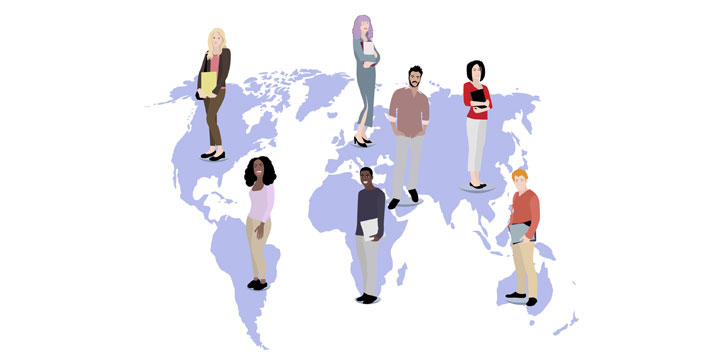The beginning of McGill’s remote semester has been especially challenging for international students, who faced the additional barriers of visas, study permits, and border closures. International students will continue to face unique hurdles throughout the rest of the year, as many struggle accessing courses, academic help, and course materials from their homes across the globe.
For starters, it has become increasingly difficult to simply obtain a study permit. Many application and biometrics centres are closed due to public health restrictions. In response, the Canadian government launched a two-stage assessment process for study permits in July. The first stage of approval allows students to start their studies online, while the second stage approval requires students to complete the pending process and present their biometrics and medical documents to the visa officer. While school started three weeks ago, some students have not been granted their first stage approval until now.
Kushagra Chawla, U0 Arts, was one of many students who saw his Québec Acceptance Certificate (CAQ) process delayed due to the pandemic.
“Firstly, I was unable to submit my documents on time due to the closure of the courier services,” Chawla said. “It took me a month to receive my CAQ. After receiving it, I saw the validity dates for the documents were missing. Fortunately, the department that handles these issues was kind enough to reissue me the correct document in two days.”
Chawla added that these encounters often caused him to feel unmotivated and anxious.
Other than obtaining the necessary documents on time, students unable to travel to Montreal face many logistical challenges, from obtaining course materials to clashing time zones and spotty Wi-Fi.
Sarman Singh Chandhok, U0 Arts, is an international student who considered moving to Montreal in the fall. He shared his concerns about finding textbooks and course materials. He’s still adjusting with this situation with the help of ebooks rather than physical textbooks.
“I am worried about how I will get my textbooks,” Chandhok said. “I have been searching for the books online, as I can’t make it to Le James McGill Bookstore.”
Although professors list required course materials at the beginning of the course, it is difficult to find certain textbooks in different countries, since they are often only available in Montreal.
Sneha Vaishali, first year neuroscience master’s student, was prepared to start her master’s at McGill this fall. However, due to logistical problems, she was unable to enter Canada, which has affected her ability to carry out the research component of her program.
“I was supposed to start working in my lab in May, but being unable to procure travel documents and the lockdown being imposed on many countries […] made the process very uncertain,” Vaishali said.
As Vaishali is not able to perform experiments in-person, she feels that it might be difficult for her to catch up once she is able to come to Montreal.
Students struggling with accessibility issues can reach out to McGill’s International Student Services (ISS) for support. ISS is offering a number of webinars and workshops, including rapid advising, to support students navigating immigration issues during the pandemic. Additionally, ISS has a program called The Buddy Program, which pairs new international students with upper-year international students to support their transition to university life.
These are challenging times for all members of the McGill community. To alleviate immigration-related pressures, Immigration, Refugees and Citizenship Canada (IRCC) announced that international students who were approved for a study permit to begin their program in Canada in May or June will be able to begin their program online without affecting their eligibility to eventually apply for a Post Graduate Work Permit. Previously, international students would have had to continuously study full-time in Canada for at least eight months to be eligible, and online study could render them ineligible.
However, this change comes alongside changes to the Quebec Experience Program (PEQ) immigration program, which are poised to make gaining permanent residency more difficult for international students after graduation. Students can lend their support to groups like Le Quebec c’est nous aussi who oppose this legislation, and advocate for their international peers as they face unique challenges this remote semester.









